Interview with Ambassador Elizabeth Nicol of Ghana
In view of the fast growing ties between Ghana and Korea, it is hoped that the two Presidents will exchange visits in the very near future. These ties are characterized by the exchange of high-level visits and opening-up of economic and commercial ventures by the Korean companies in Ghana. This was disclosed at a recent interview with Ambassador Mrs. Elizabeth Nicol of Ghana in Seoul.
A wide range of topics was discussed at the interview, which included the important developments slated for this year in Ghana and relations between the two countries, achievements made in Ghana under President Mahama, increasing volume of bilateral trade and economic exchange and tourist attractions in Ghana. Excerpts from the interview follow:
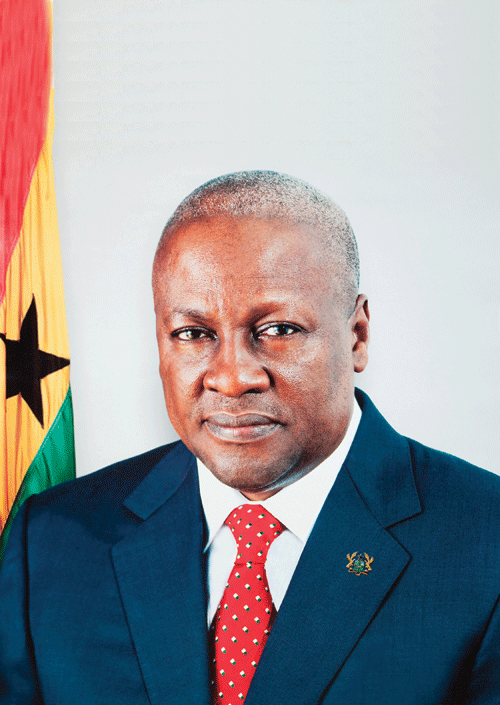
Question: What are the important developments scheduled between Korea and Ghana, including the possible visit of your Head of Government. Any economic and/or other delegations coming to Korea?
Answer: Relations between Ghana and Korea has been characterised by the exchange of high level visits and the opening up of economic and commercial ventures by Korean companies in Ghana. Notable among the visits was that paid by former President of Ghana, John Agyekum Kufuor and the then Vice President John Dramani Mahama’s in March 2010. During his visit, the then Vice President, now President of Ghana, met with Korea’s top government officials and business leaders which resulted in fruitful exchanges aimed at strengthening and expanding cooperation between the two countries.
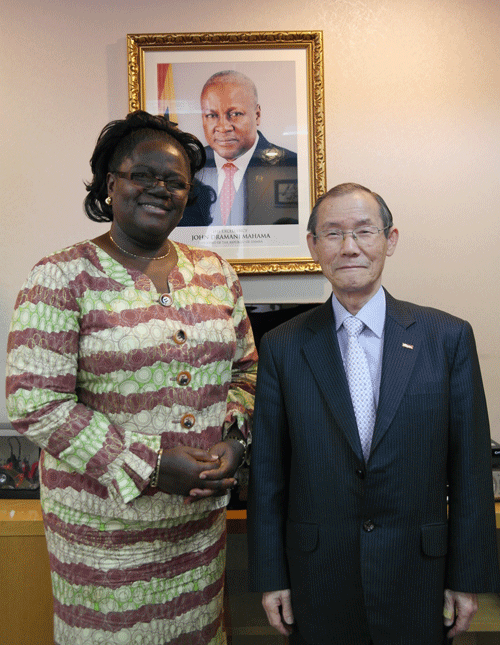
Other high ranking officials such as Ghana’s Speaker of Parliament and his deputy were in Seoul and held discussions with the Korean Speaker of Parliament, Mr. Kang Chang-hee, at the margins of the World e-Parliament Forum in 2014. The Foreign Minister of Ghana was in Seoul at the invitation of the Korean government to participate in the Seoul Cyber Space Conference in October, 2013.
Ghana’s Minister for Communications was in Busan in October, 2014 to attend the ITU Plenipotentiary Conference. At the margins of the conference, a Memorandum of Understanding on collaboration in the field of Telecommunications and Broadcasting was signed between the Ministry of Science, ICT and Future Planning and the Ministry of Communications of Ghana.
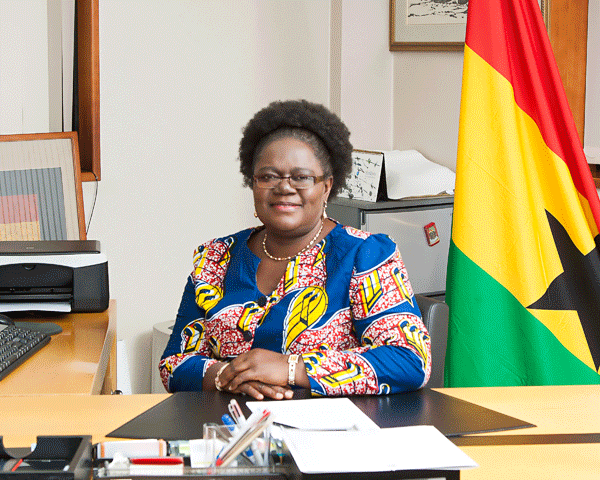
Similar visits have been paid to Ghana by Korean high ranking government officials. The former Vice Minister for Knowledge Economy led a business delegation to Ghana in March 2011. Thereafter, the then Chief Director of the Ministry of Knowledge Economy, Mr. Kim Chang Kyu, led a 30-member delegation to Ghana to sign a number of agreements with Ghana’s Ministry of Finance and Economic Planning. Cooperation in this direction has boosted the friendship and further strengthened the bilateral relations between Ghana and the Republic of Korea.
From the above it is obvious that the relations between Ghana and Korea has indeed been characterised by high level visits by members of each government. The Korean first Vice Minister for Foreign Affairs was scheduled to visit Ghana in July 2014 but the visit was unfortunately cancelled at the last minute. Ghana looks forward to a rescheduling of this visit in 2015. It is envisaged that 2015 will see the exchange of visits by the Presidents of both countries.
Since assuming office in January 2013, Ghana’s President has been pursuing even further cooperation with Korea in the areas of trade, technology, education, culture and greater investments in business.
It is the aim of the President of Ghana to bring to conclusion negotiations on the Bilateral Investment Treaty (BIT) which was initiated in February 2014 between Ghana and Korea. Work is in progress to revitalise the Ghana/Korea Permanent Joint Commission to enhance bilateral cooperation between the two countries.
The Ghanaian leadership hopes to further increase Ghana’s cooperation with Korea in the area of medical tourism, nuclear energy, the possible replication of the Saemaul Undong model of development and the Green Growth Initiative projects of President Park Geun-hye. It also believes that Ghana has a lot to offer Korea in culture and trade.
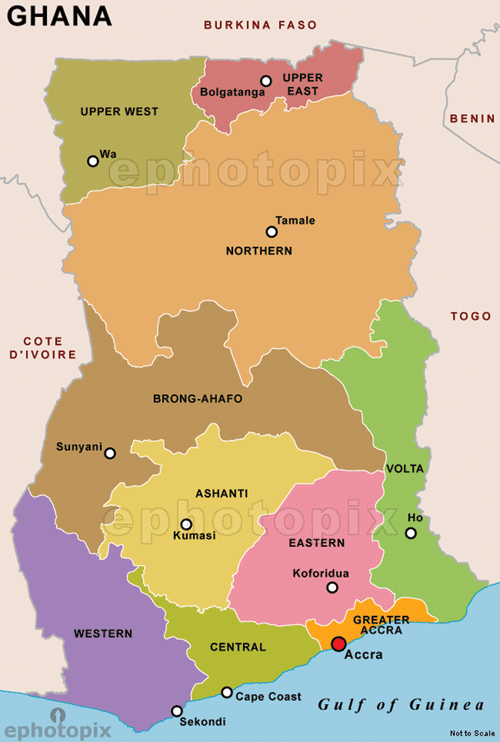
Q: What are the major achievements made by the Head of Government Ghana? Please introduce him in detail:
A: Recently, President Mahama’s economic team implemented the Medium-Term Strategic Development Plan to translate his vision into programmes and projects to propel the country’s socio-economic transformation. This is a three-year plan spanning from 2014 to 2016.
In his address on 1st February, 2013 to members of the Diplomatic Corps in Ghana, the President enumerated his economic and democratic gains, affirmed Ghana’s commitment to strengthen relations with its allies, and reiterated Ghana’s resolve to fighting terrorism, cyber fraud and money laundering. He also affirmed the government’s commitment to multilateralism and the use of peaceful means to resolve disputes within the international community.
During the President’s third year in office, he has been able to accomplish an inclusive society in which the weak and the most vulnerable could make their contributions for the development of a better Ghana. To this end, the Ministry of Gender, Children and Social Protection has successfully drafted the Affirmative Action Bill, the Interstate Succession and Protection Rights of Spouses Bills, which are all aimed at improving the condition of the vulnerable in the Ghanaian society.
Ghana has been successful in reducing infant mortality rate from 5.8 per 1000 live births in 2012 to 2.3 per 1000 in 2014. HIV/AIDS infection has also been drastically reduced by 1.37%.
The Mahama Administration is actively improving the quality of education in Ghana. . Science resources centres have been rehabilitated to facilitate the learning of science and mathematics among the youth. Currently there is a programme to build 200 new senior high schools throughout Ghana.
Government has been able to enhance food security in the country through the provision of easy access to credit facilities, subsidized fertilizers, improved planting materials and quality extension service for farmers. In 2013, the UN Food and Agriculture Organisation (FAO) and the AU/Forum for Agricultural Research in Africa (FARA) recognized the contributions of Ghana in achieving the Millennium Development Goals (MDGs) of reducing hunger and malnutrition in advance of the 2015 target date.
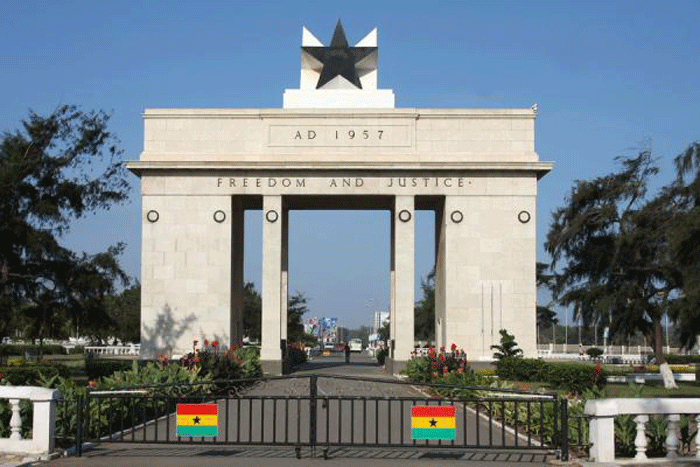
Q: What is the volume of bilateral trade between Korea and Ghana and what is its outlook this year?
A: Trade between Ghana and Korea continues to witness significant growth. Ghanaian businessmen and women travel to Korea to conduct various business activities. Ghanaians normally purchase Korean vehicles and auto parts because of its affordability and its low fuel consumption as compared to other brands. Ghanaian businessmen also purchase items like refrigerators, computers, electronic equipment, machinery, sodium, cement clinkers and clothing. Ghana on the other hand exports raw materials such as cocoa beans, manganese and concentrates, aluminum, copper waste, scraps and gold to Korea.
The volume of trade between Korea and Ghana is relatively small. The balance of trade is always in favour of Korea. The average annual volume of export trade for the twelve year period (2001-2012) from Korea to Ghana was US$163,785.00. While exports from Ghana to Korea in 2013 amounted to only US$40,681.00 that of Korea to Ghana in that same period was $350,954.00.
The Mission is doing its best to address this gap in trade between Ghana and Korea. The ban on importation of fresh agricultural products from Ghana to Korea is a major concern to the government of Ghana. When this ban is lifted it could go a long way in addressing this gap.
Korean companies such as Hyundai, Samsung Electronics. LG Electronics, SK Energy as well as individuals are doing business in Ghana. In addition, Korea agencies such as KOICA, KOTRA, POSCO, EXIMBANK, KEPCO have extended their business operations into Ghana.
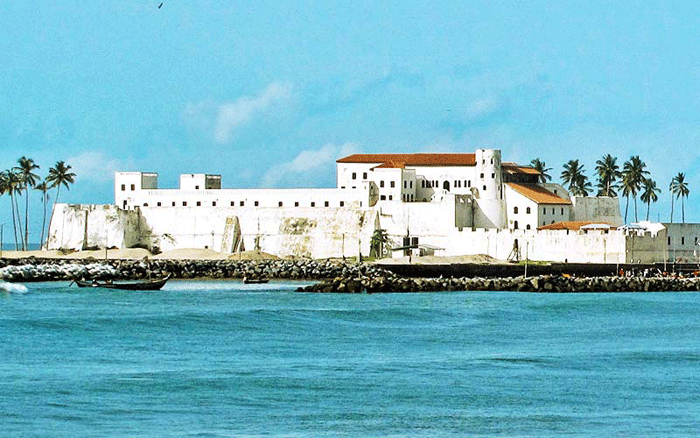
Q: What is celebrated on your National Day and what are the details related with it?
A: Ghana was a British colony and was formally known as the Gold Coast. It gained independence from the United Kingdom on March 6th, 1957 under the leadership of the first President Dr. Kwame Nkrumah.
Dr. Kwame Nkrumah was committed to the decolonization of the whole of Africa and worked towards that. He implemented policies and programmes leading to the rapid development of Ghana within the first nine years of independence. His rule was however short lived as he was overthrown in a coup in February 1966 by the military. From that time Ghana was plunged into a period of military coup d’?tats until multi-party democracy was restored in 1992.
Ghana has held successful elections for five consecutive times since then. The last elections was held on December 7, 2012 which was won by President John Dramani Mahama of the National Democratic Congress (NDC). The election was declared free and fair which won the admiration of international observers. President John Dramani Mahama was sworn into office on 7th January 2013.
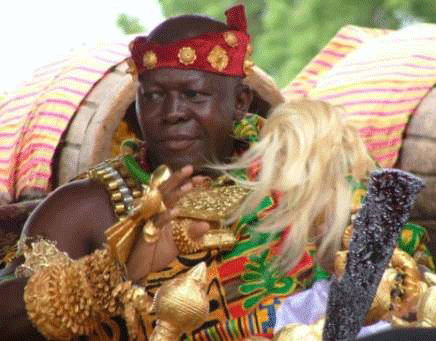
Q: What are the major tourist attractions of Ghana? What are the important tourist destinations?
A: International tourist arrivals has continued to grow at an average annual rate of 13.6% for the past four years, with actual numbers increasing from 400,000 in 2000 to around 1,000,000 in 2014.
There are no direct flights from Korea to Ghana but Koreans can fly conveniently through the major international airlines.
In local Ghanaian parlance, Ghanaians say that their country is closest to the centre of the earth. They say this rightly in the sense that if the centre of the earth is considered to be a location on the coordinates 00, 00, then Tema, which is a port city on the south eastern coast of Ghana is that location because it lies exactly on the Greenwich Meridian (00), about 500km north of the equator, making it the city closest to that location. The exact location of the 00 Meridian coordinate is marked on the beach in Tema, which tourist may wish to visit.
There are interesting and exciting places that Koreans could visit to enjoy the rich culture and warmth of the people of Ghana. There are the world heritage castles and forts dotted along the coast of Ghana. Notable amongst them are the Cape Coast and Elmina Castles. These were used as slave transit points during the colonial rule by western countries and also served as their headquarters. There are also natural parks and nature reserves which include the Kakum National Park, Bole National Park, the Hippopotamus Sanctuary in Wenchiau, the Paga crocodile pond where one can sit on a live crocodile, the Boaben-Fiaman monkey sanctuary and the Bobiri butterfly sanctuary with about 400 different butterfly species. In all, Ghana has 22 national parks, reserves and wild life sanctuaries.
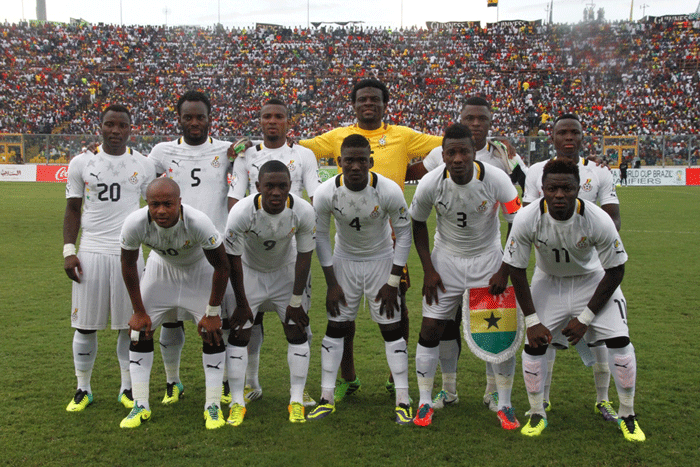
Q: What are the outstanding features of the culture of Ghana?
A: Ghana has a rich cultural heritage dating back to the 15th Century. The major tribes are Akan, Dagbani, Ewe and Ga. The Ashanti tribe of the Akan is the largest in Ghana. Ghana is also known for its rich cultural festivals such as FetuAfahye, Homowo, Hogbetsotso and the Asogri Yam Festival. There is also the International Festival of Emancipation which traces the slave routes used during the colonial period.
Popular dishes are fufu with light soup, fried plantain and red beans stew, kenkey and fish with shito (black pepper). Popular Ghanaian dishes for tourist are palava sauce (spinach stew) with rice or yam, and jollof rice which is a local variation of fried rice.
There are the traditional weaving villages of Kpotoe in the Volta Region and Bonwire in the Ashanti Region. Ghana has produced famous fashion designers around the world such as Ozwald Boateng, Kofi Ansah, Mawuli Kofi Okudjeto, among others. There are also local designers who produce men’s and women’s accessories for the international market. The famous kente cloth is an indigenous product from the Bonwire weaving village.
Q: Ghana is noted for having good football players. Please introduce them.
A: Football is one of the passions in Ghana. It is no wonder that Ghana is famous for having very good football players around the world. These include Abedi Pele, Tony Yeboah, Asamoah Gyan, Michael Essien, Andre Ayew and Christian Atsu who won the best player at the recently held African Cup of Nations in Equatorial Guinea. It would be recalled that in 2010 Ghana was the only African country to qualify for the quarter finals in the 2010 World Cup in South Africa and but for a sheer stroke of bad luck, Ghana would have advanced to the semi-final stage. The Ghana team, the Black Stars, have played with their Korean counterparts on 2 occasions with Ghana beating Korea on both occasions.
About Ambassador Elizabeth Nicol of Ghana in Seoul:
Mrs. Elizabeth Nicol is the Ambassador of the Republic of Ghana to the Republic of Korea. She is a graduate of Kwame Nkrumah University of Science and Technology, Kumasi in the Ashanti Region of Ghana. She holds a degree in Land Economy.
Before being appointed as the substantive Ambassador to Korea, she served as the Deputy High Commissioner to the United Kingdom from 2009-2013. She has other qualifications to her credit in the following areas: M.A. in Population Studies, Certificates in Advanced Management Course for Women in Management. She worked with a Non-Governmental Organisation (NGO), called the 31st December Women’s Movement, from 1997 to 2007, and was the NGO’s representative on the International Fund for Agricultural Developments collaborative project with NGOs.
During her political career, Ambassador Nicol attended numerous United Nations Conferences in Ghana, Egypt, Rome and Geneva on behalf of the Government of Ghana.
She is married with two lovely children.

